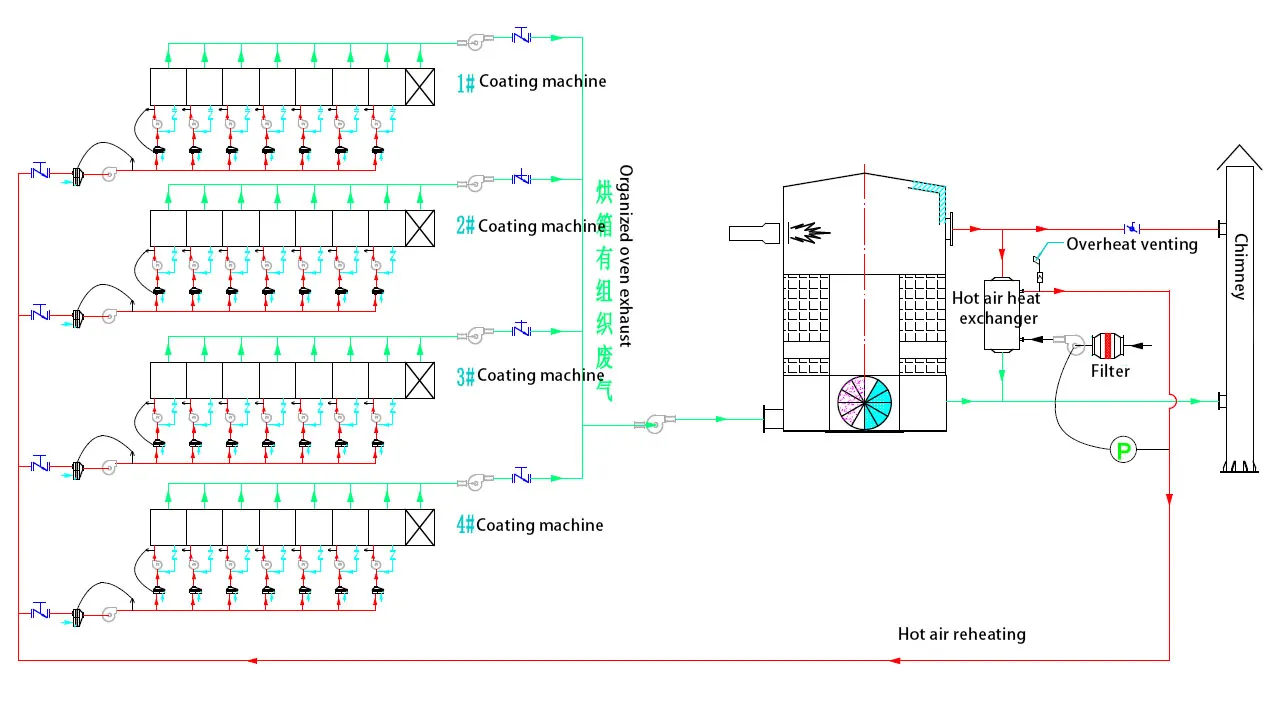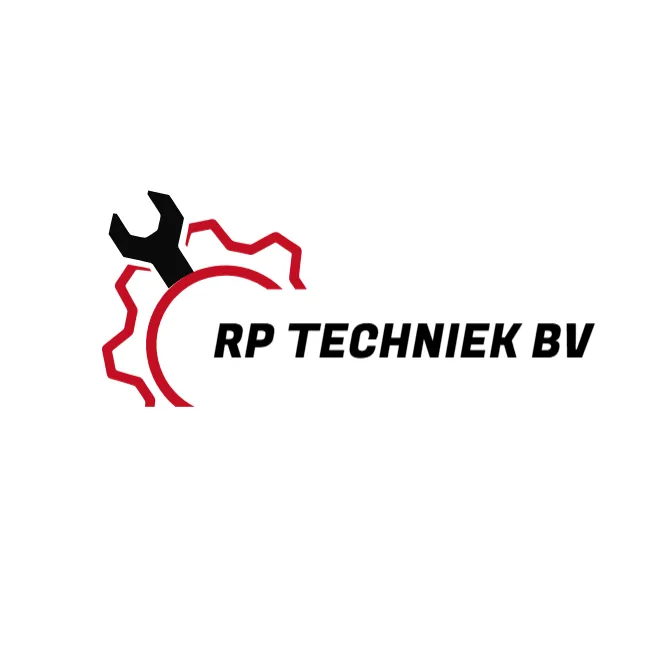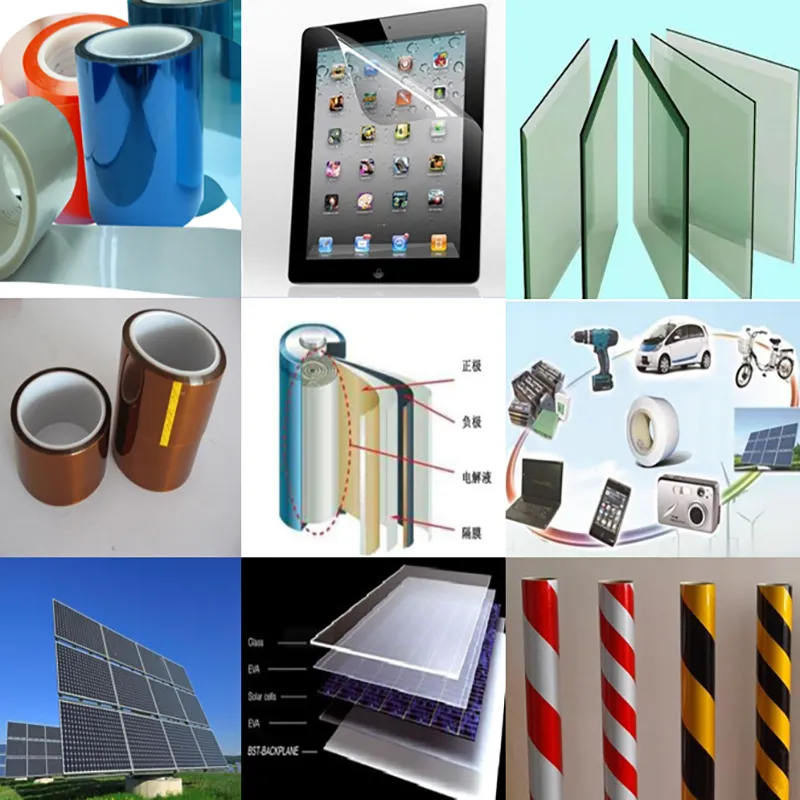Film Coating Industry Treatment Solutions
RTO enables significant air volume reduction from coating machines while efficiently destroying VOC emissions. Their advanced heat recovery technology captures and reuse thermal energy, drastically reducing operational energy consumption and supporting sustainable production.
At present, RP Techniek BV rotary RTO has been widely used in VOCs management of release film, protective film, reflective materials, advertising consumables, adhesive tape, polarizer, solar backplane film, aluminum plastic film, lithium battery diaphragm and other enterprises produced by coating process.
- Characteristics of waste gas:
- Source of waste gas: Organized waste gas from coating oven; Unorganized waste gas from coating machine and glue dispensing room
- Waste gas components: Ethyl acetate, toluene, isopropanol, butanone, n-hexane
- Process scheme: Air reduction and concentration + rotary RTO + waste heat recovery
- Waste heat recycling methods: hot water recycling, steam recycling, hot air recycling, heat transfer oil recycling
- Waste gas concentration: 1500mg/m³~10000mg/m³
- Emission limits: NMHC≤50mg/m³
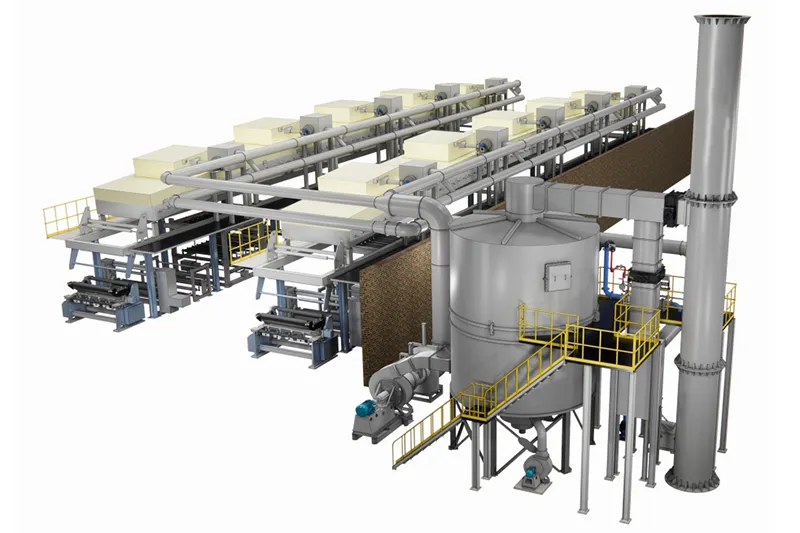
Overall Solution for VOCs Waste Gas Treatment in the Film Coating Industry
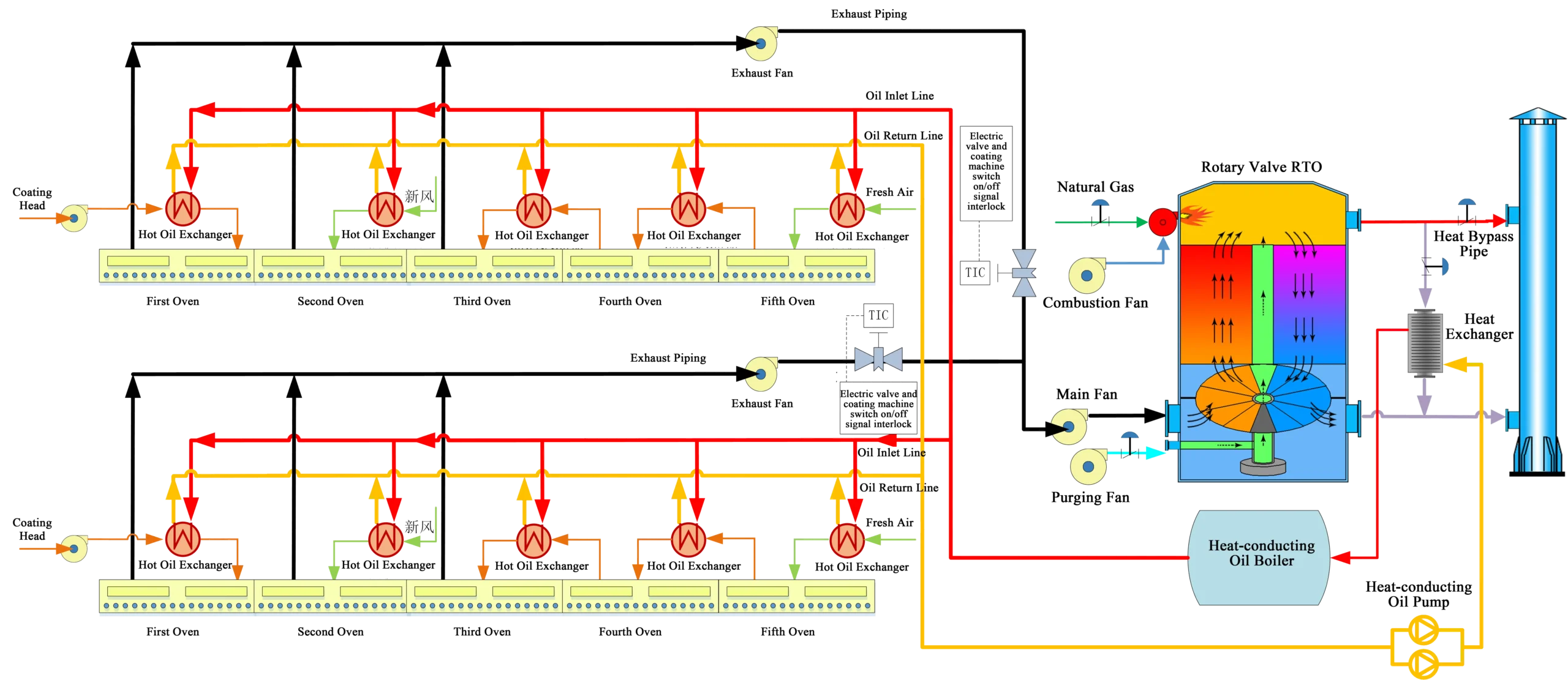
Treatment Targets
Organized emissions <50 mg (non-methane total hydrocarbons);
Energy conservation: Only natural gas is used for furnace startup!
In-plant unorganized emissions: Non-methane total hydrocarbons <10 mg/m³;
Post-treatment chimney emissions: Nitrogen oxides <50 mg/m³
Energy conservation: Only natural gas is used for furnace startup!
In-plant unorganized emissions: Non-methane total hydrocarbons <10 mg/m³;
Post-treatment chimney emissions: Nitrogen oxides <50 mg/m³
Collection of VOCs Exhaust Gas - Air Reduction of Coating Machine
Air Recirculation Between Ovens

Low-concentration exhaust gas from the rear-section ovens is supplied to the fresh air intakes of the front-section ovens for use as makeup air. This stream is generally not introduced into the first two or three high-concentration ovens. This method can effectively reduce the total exhaust air volume of the coating machine.
Coating Head/Adhesive Mixing Room Connected in Series to the Ovens

Low-concentration exhaust gas from the coating head/adhesive mixing room is delivered by a fan to the fresh air intake of the ovens to be used as makeup air (it is generally not introduced into the first two high-concentration oven sections). This method can eliminate the need for separate exhaust systems for the coating head and adhesive mixing room, and avoids diluting the overall concentration by introducing low-concentration exhaust gas into the RTO.
Air Reduction via Large-Scale Recirculation of Low-Concentration Exhaust Gas — Suitable for Thermal Air Recuperation
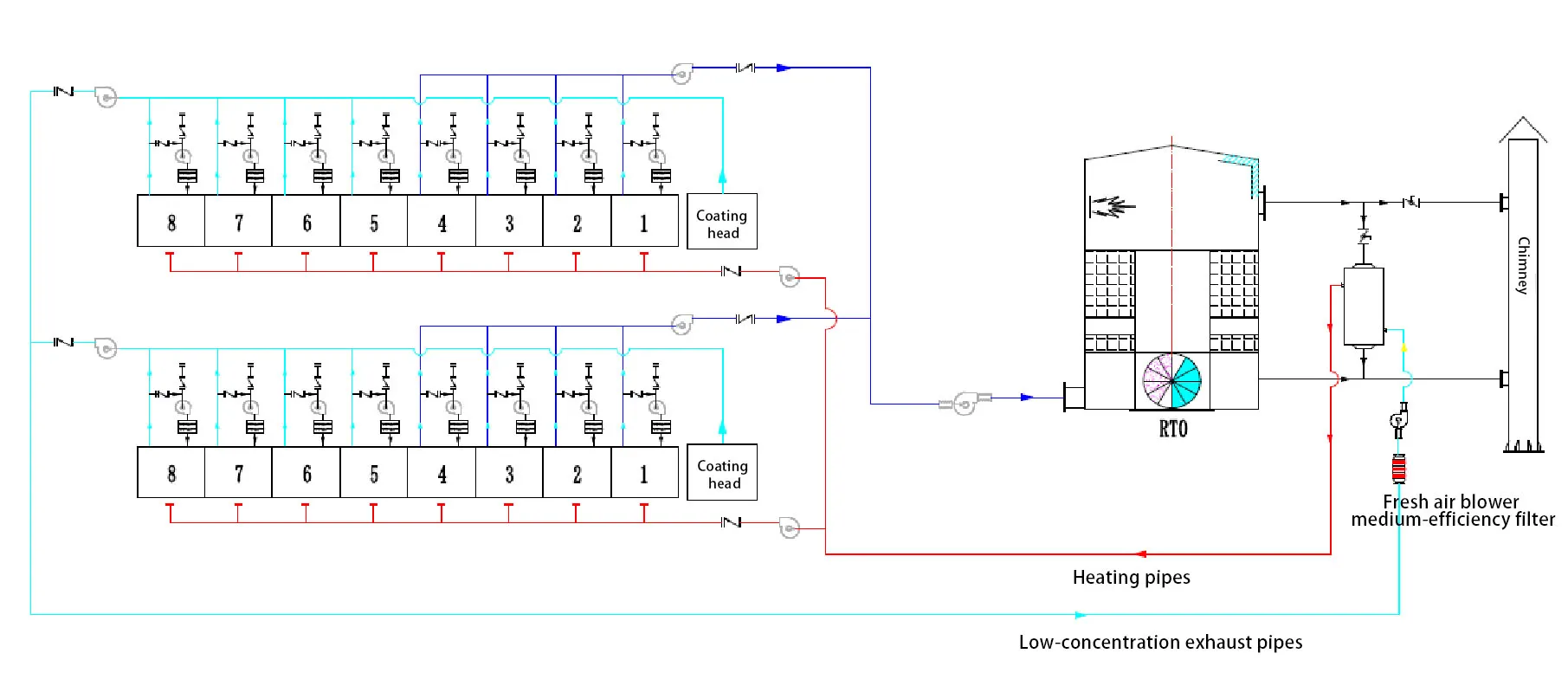
Waste Heat Recovery
Waste Heat Recovery Methods and Selection — Steam
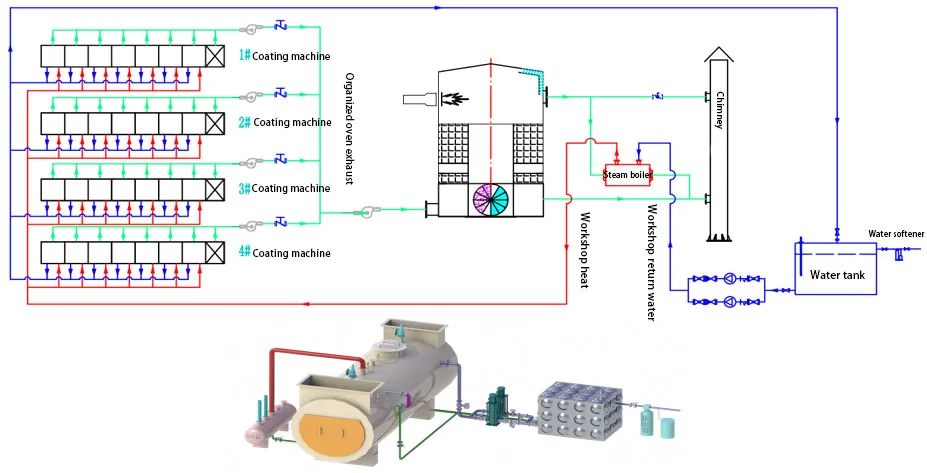
Waste Heat Recovery Methods and Selection — Thermal Oil
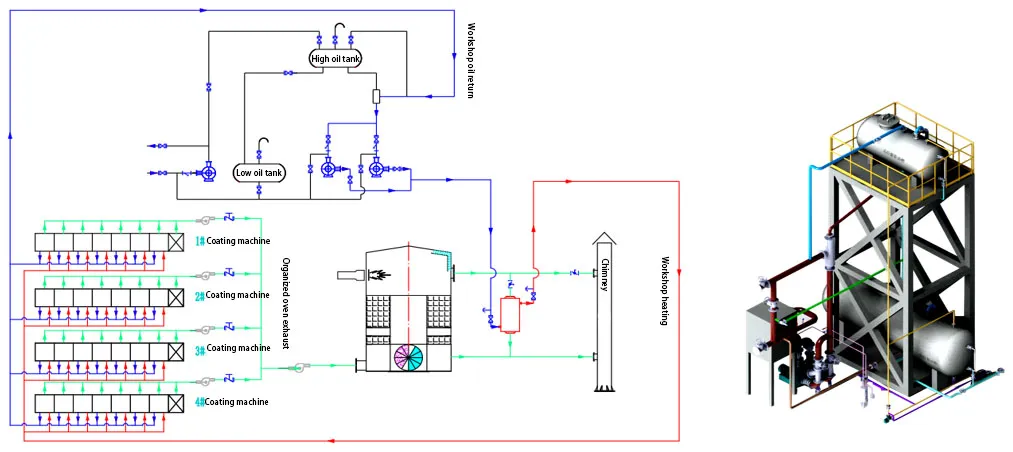
Hot Air Waste Heat Recovery Method — With Standby Electric Heating
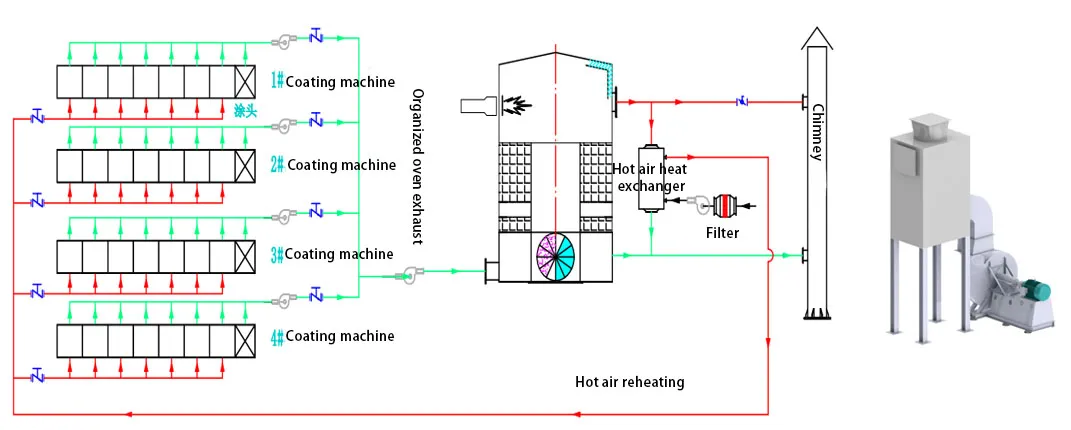
Hot Air Supply Process for Coating Machine With Backup Heat Source (Hot Air Furnace)
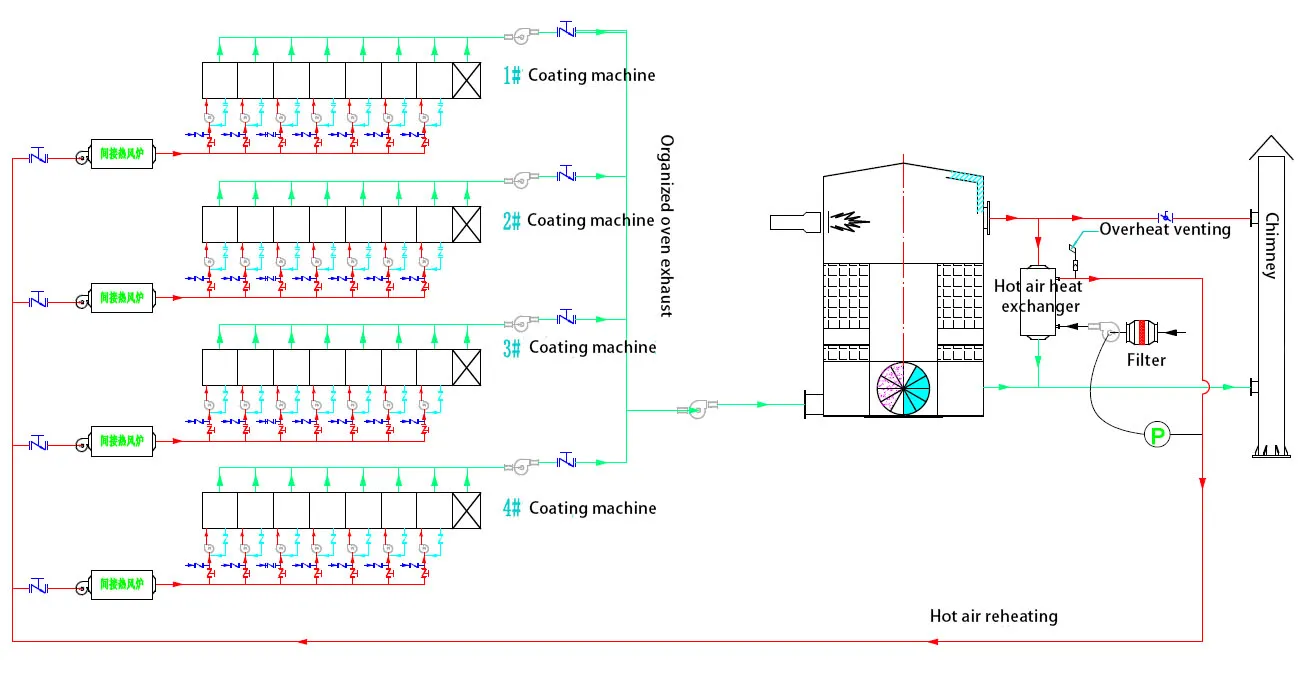
Hot Air Supply Process for Coating Machine Without Backup Heat Source
